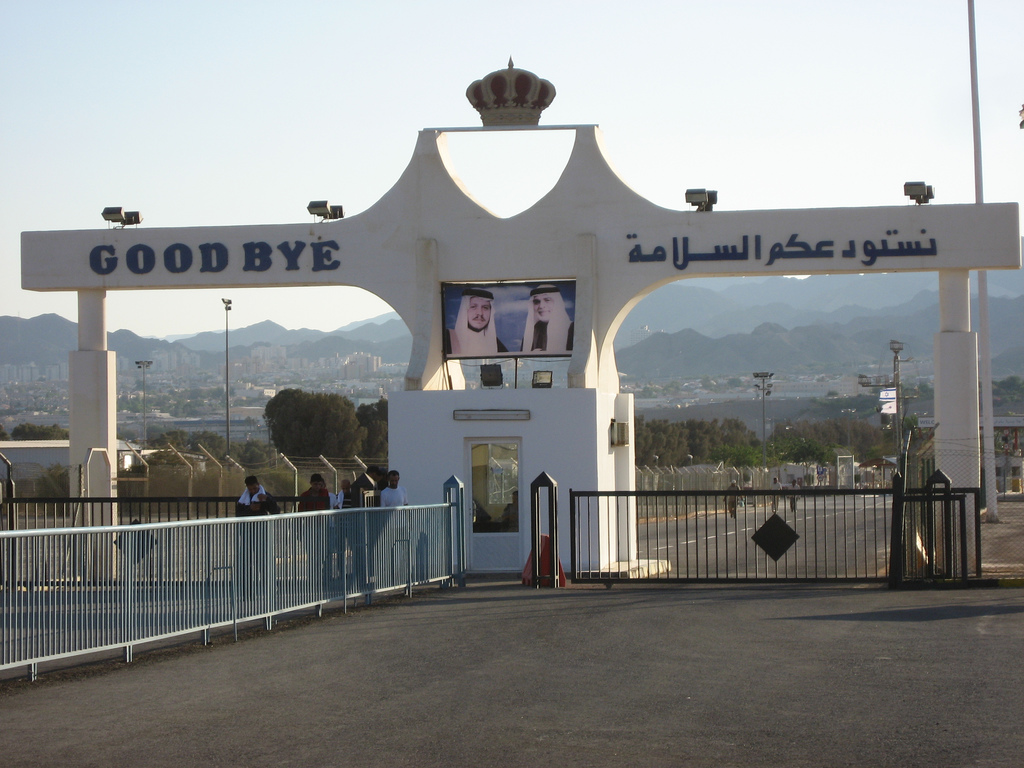As the cab approached the Jordan River, away from the rocky hills of Amman, I could feel the air getting hotter. I asked the driver to turn on the news, but Arabic pop was all there was. We passed some bushes, trees, a Bedouin boy, and a wrecked building—and I was in Gaza.
I was fifteen when we left Palestine in the summer of 2000, just a few months before the al Aqsa Intifada. We collected our things and left from Cairo.
Now I was going home. At least, I was going to try.
I was born in the Gaza Strip, in a refugee camp in Rafah. Like everyone in the occupied territories, I received my Israeli ID card—my hawiyah—when I came of age. Gaza IDs are different from West Bank IDs, which are different from Jerusalem IDs, which are different from Palestinian-Israeli IDs. And none of the four groups is free to move around. Even in the 1990s, at the height of the Oslo process, my family required permission from the Israelis to move to Ramallah.
But now I was almost there. My pulse pounded in my temples as I got through Jordanian customs. I approached the Israeli border guard.
I handed him my American passport—I’d been naturalized years ago—rather than my hawiyah.
He asked a few questions about what I was doing there before making a decision that corresponded to a numbered sticker on my passport. My passport states that I was born in Gaza. I got a four.
The next Israeli pulled me out of line and sent me off with an interrogator with a sidearm and submachine gun. Everyone said this would happen. So I told myself to play cool, relax my shoulders, take it easy.
He began to ask me questions in Arabic. “You English? Where you from?”
“I’m from Palestine; I was born in Gaza, but I’m from New York.”
He looked surprised and began to leaf through my passport.
“Gaza is very beautiful,” he said.
I settled into a plastic chair and crossed my legs. “So, where you from?” I asked him.
“From here. From Jerusalem.” I smiled and nodded. “I was born in Ukraine,” he said.
“Oh yeah? I’ve been dying to go to Eastern Europe. I hear it’s beautiful.”
He nodded this time and rocked on his heels.
“The girls are very beautiful,” he said, raising his eyebrows.
“I bet.”
He walked away a second later and handed my passport to a woman. She came over and sat on the edge of her seat next to me. She didn’t appear armed.
I smiled at her, especially when I didn’t understand her bad English, and cracked jokes.
“So um . . . how do you . . . umm?”
“Ask me in Hebrew if you like,” I suggested
“Oh! You speak Hebrew?”
“No, but I’m just saying.” She laughed.
After about ten minutes, she gave me back my passport, pointed to where I had to go to get it stamped, and wished me a nice trip. I stood and rushed to grab my belongings.
Walk, don’t run. This is Belgium. This is easy.
Behind a glass partition, the girl who stamped my passport couldn’t have been more than nineteen. A dead fly rested on a Post-It on the desk next to her. Someone had drawn a blue circle around it and scrawled something in Hebrew.
“What’s that?” I asked with a grin.
She looked at me sullenly through stringy black hair. “I killed him.”
In America she’d be smoking cigarettes in a high school bathroom and listening to Slipknot.
She stamped my passport and handed it back.
“What’s it say?” I pointed to the Hebrew lettering around the fly.
“RIP.”
I forced a laugh.







